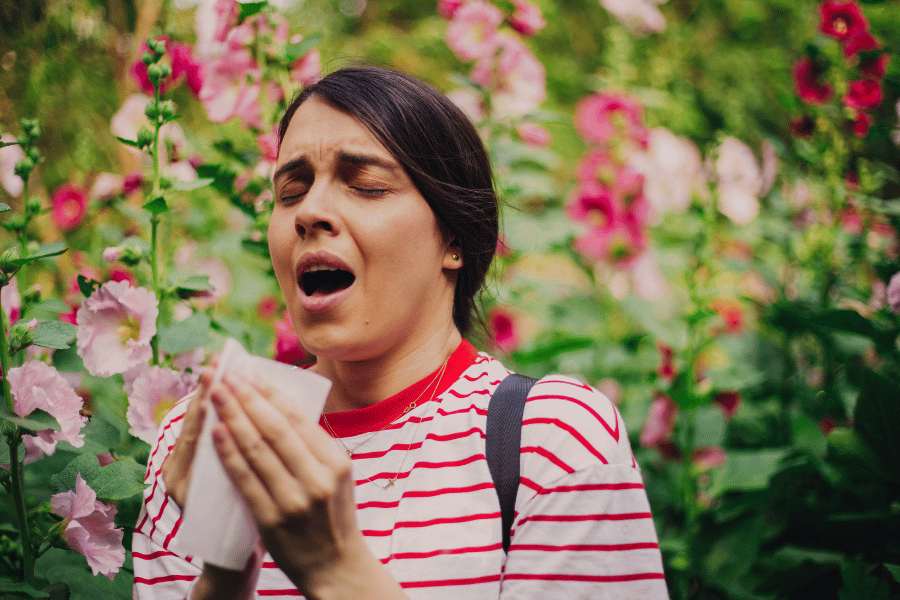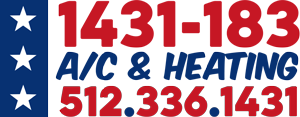As temperatures fluctuate with the changing seasons, many of us welcome the beauty of spring or the golden hues of autumn with open arms. However, for allergy sufferers, these transitions often bring unwelcome guests: seasonal allergies. The sneezing, itchy eyes, and runny noses are all too familiar symptoms for many.

But did you know that your home’s heating, ventilation, and air conditioning (HVAC) system can play a pivotal role in minimizing these symptoms? Let’s explore how you can turn your HVAC system into a powerful ally against seasonal allergies.
Understanding the Link Between HVAC Systems and Allergies
Your HVAC system does more than just regulate temperature; it also affects indoor air quality. Pollen, dust mites, and mold spores – the usual culprits behind seasonal allergies – can infiltrate your home. Without proper filtration and ventilation, these allergens recirculate through your HVAC system, exacerbating allergy symptoms.
Regular Replacement of Air Filters
One of the simplest, yet most effective, strategies is to regularly replace your HVAC air filters. High-efficiency particulate air (HEPA) filters are especially adept at trapping allergens. During peak allergy seasons, consider replacing filters every 30-60 days to maintain optimal air quality. This not only helps reduce allergens but also keeps your system running efficiently.
Invest in High-Quality Air Filters
Not all air filters are created equal. Look for filters with a high MERV (Minimum Efficiency Reporting Value) rating. Filters rated MERV 11 or higher are more efficient at capturing smaller particles, including pollen and mold spores, thus providing a cleaner indoor air environment. Remember, a higher-quality filter means better protection against allergens.
Regular Maintenance Checks
An HVAC system in top condition is your best defense against airborne allergens. Scheduling regular professional maintenance checks ensures that your system is not only functioning efficiently but also not contributing to poor indoor air quality. These checks can identify issues like mold growth in ducts or problems with the system that might be allowing allergens to enter your home.
Consider Adding a Whole-Home Air Purifier
For those particularly sensitive to seasonal allergies, integrating a whole-home air purifier into your HVAC system can offer additional relief. These systems work in tandem with your HVAC to filter out even more allergens from the air circulating through your home, providing an extra layer of protection.
Keep the Indoors Clean
Reducing the amount of allergens that can enter and settle in your home can also help minimize symptoms. Regularly vacuuming with a HEPA-filter-equipped vacuum cleaner, dusting with damp cloths, and washing bedding in hot water can significantly reduce allergen levels indoors. Additionally, keeping windows closed during high pollen days prevents these irritants from entering your home.
Manage Humidity Levels
Maintaining indoor humidity levels between 30% and 50% can help limit the growth of mold and dust mites, both common allergens. Use a dehumidifier if necessary, especially in areas prone to dampness, such as basements.
Educate Yourself on Pollen Counts
Lastly, staying informed about local pollen counts can help you anticipate bad allergy days. On days when pollen counts are high, it’s especially important to ensure your HVAC system is set to recirculate indoor air, rather than pulling in outdoor air, to avoid introducing new allergens into your home.
In Conclusion
While seasonal allergies can be a nuisance, implementing these tips can make your home a sanctuary against allergens. By taking proactive steps to maintain and enhance your HVAC system, you can significantly reduce allergy symptoms, making your home a comfortable, welcoming space year-round. Remember, a few simple changes can make a big difference in your quality of life during allergy season.
If you are experiencing a problem with your air conditioning or heating call us at 512-336-1431 to schedule an appointment. We’ll be glad to come out and take a look at the issue.
1431-183 A/C & Heating proudly serves Round Rock, Georgetown, Cedar Park, Pflugerville, Leander, Liberty Hill, and North Austin.
